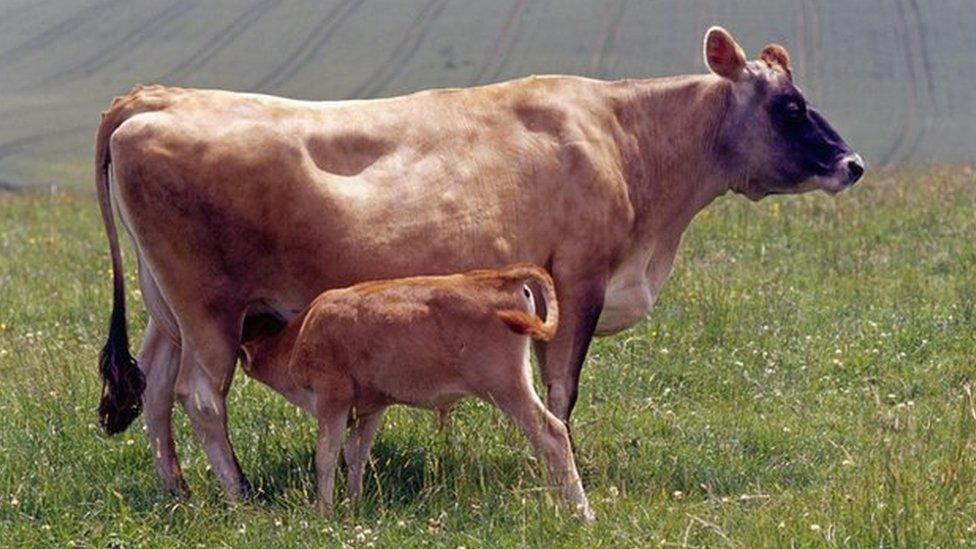Jersey cow help for Rwanda farmers
- Published

By 2018 almost 200,000 cows in Rwanda will be inseminated annually using Jersey bull semen
Jersey cows are being used as a key part of a project to improve milk production in Rwanda.
Thousands of straws of Jersey bull semen are being sent to the African country to help breed more productive animals.
Jersey crossed cows produce up to eight times more milk than the native Ankole longhorns, and also require less feed.
By 2018 it will be used to inseminate almost 200,000 cows annually.
The project, led by Jersey Overseas Aid (JOA), will also train 200 artificial insemination technicians.
Read more on Jersey cows and other Channel Island stories here
It is thought at least 12,000 smallholder dairy farmers will benefit from improved breeding and feeding techniques.
A digital database for Rwanda's dairy herd is also being created.
'Permanent improvement'
Jersey and Rwanda first worked together in dairy cow improvement in 2005.
The famous Jersey breed is now widely known and highly valued in the landlocked African country.
Carolyn Labey, Chair of JOA, said: "This is sustainable development at its best, and people in Jersey should be enormously proud of the fact that we are making a permanent improvement to the quality of an entire nation's dairy herd, and in so doing assisting many people out of poverty with better nutrition and on to better lives."
The Jersey breed, well-known for its milk production, has seen renewed popularity around the world since the relaxation of Jersey laws allowing the import of bull semen and export of cow embryos.
The plans are being discussed with a delegation from Rwanda who are visiting Jersey.